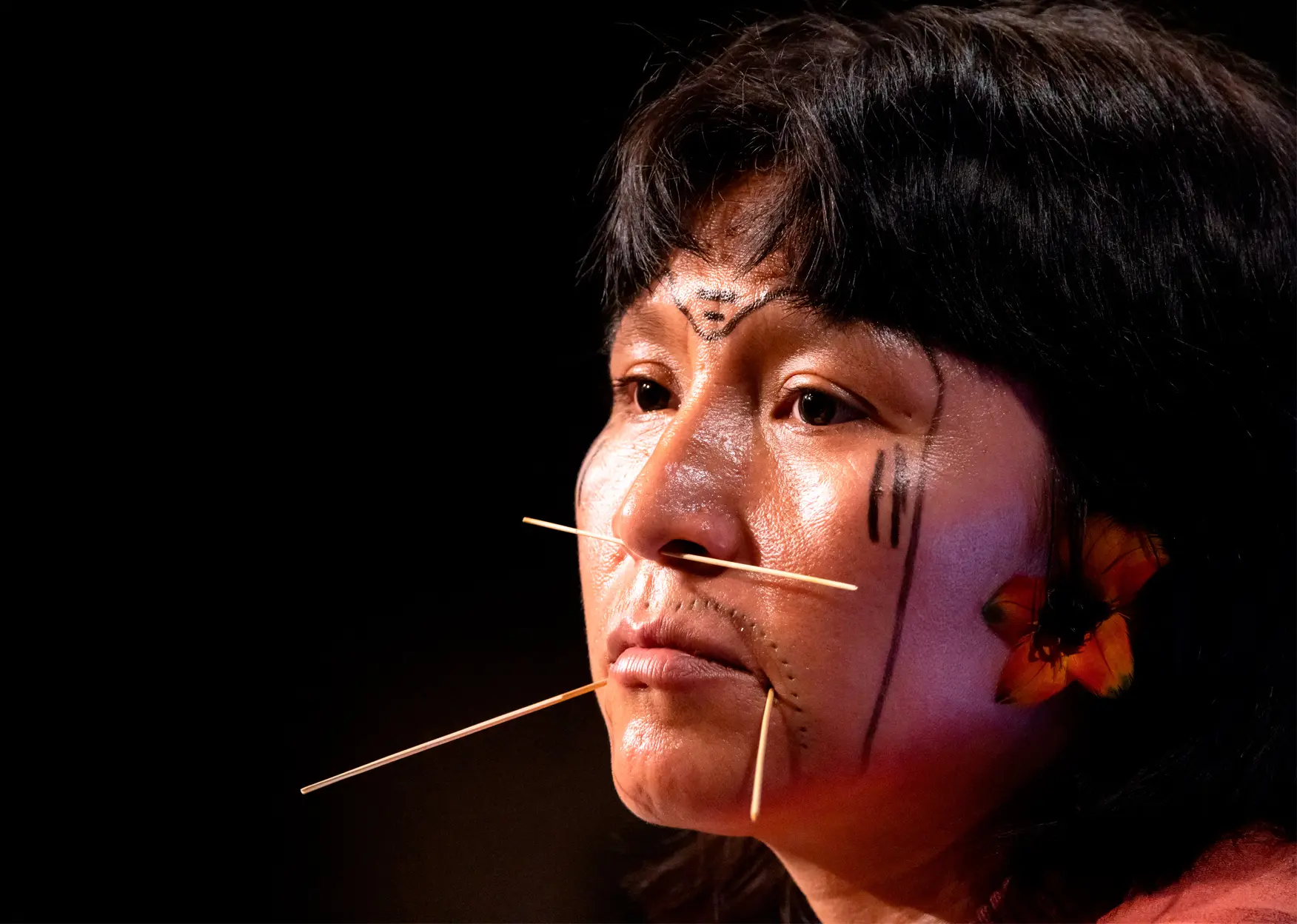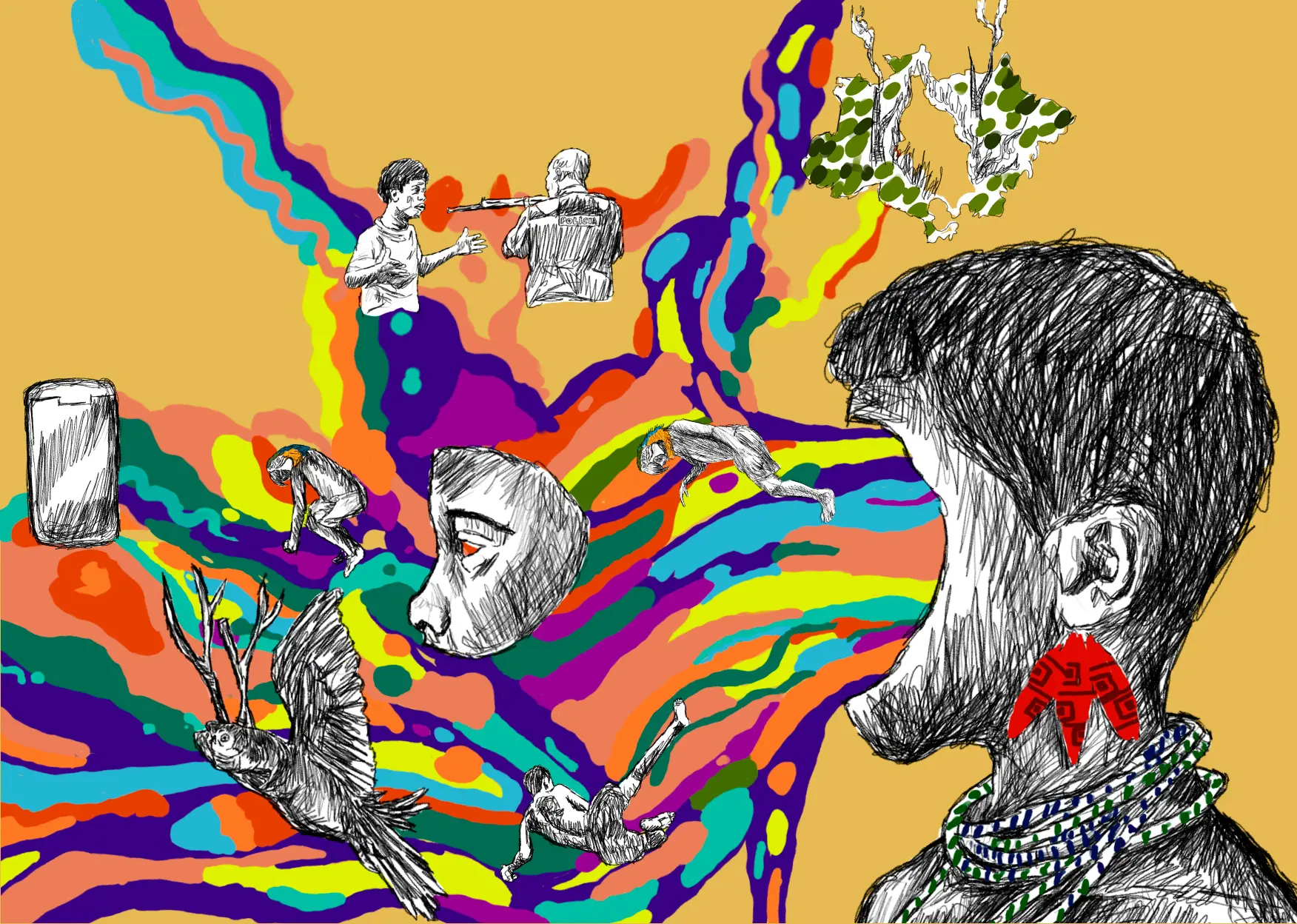

“White people, your world makes me very sad”
In this interview, Ehuana Yaira talks about the indivisible relationship between the Forest and the female body. The Yanomami artist and writer was the first member of her people to give a public talk in Europe, as part of the series “Rainforest is Female,” held at the Centre de Cultura Contemporània de Barcelona

The river in my village turned green – I was horrified to discover why
In the Xipaya Indigenous Territory, the Iriri River is suffering the effects of climate change, as its waters change color and its fish die. We Indigenous people are living in a time of uncertainty

Die a little each day
While the forests of the outside world face a growing risk of desertification, our symbolic forests, the habitat of the mental creatures who populate the individual and collective unconscious, are turning to deserts before our eyes
Journalism from the center of the world